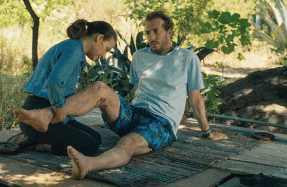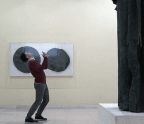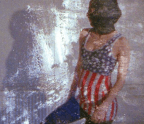
Early in Thomas King’s 2011 book The Inconvenient Indian—a sprawling look at Indigenous cultural history in Canada and the US—the author describes the infamous sculpture The End of the Trail by James Earle Fraser, depicting a depleted man in a feather headdress slumped over his bone-tired horse. This desultory figure became an icon, its silhouette silkscreened onto T-shirts, etched into road signs, and embroidered in the shape of a dreamcatcher that you can buy on eBay. Although it seems like a symbol of an inexorable decline, King suggests that the man may simply be resting, as if he and his horse will rouse again soon and ride off into the future.
Director Michelle Latimer’s adaptation of opens with a similar image: an Indigenous man in a headdress rides through a plain. He seems like a






